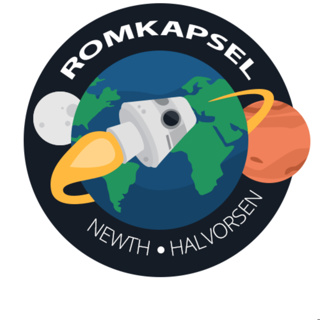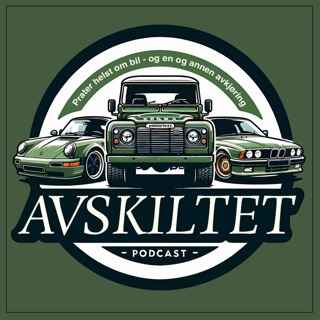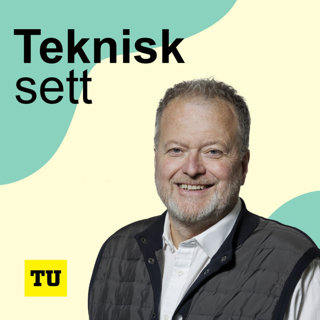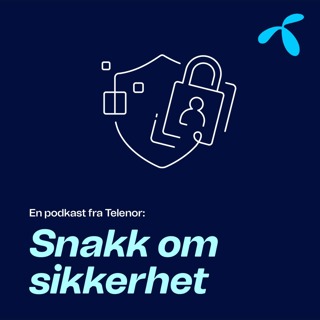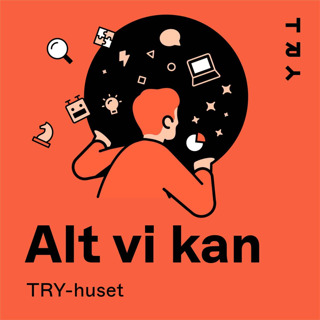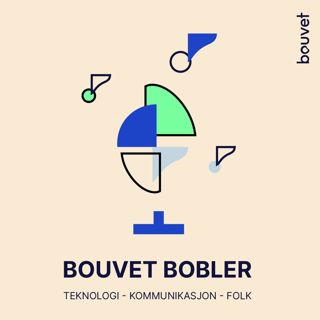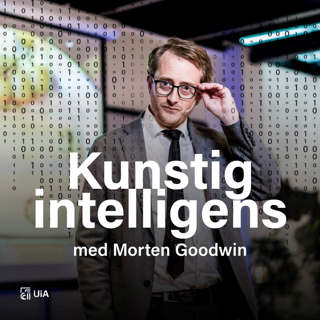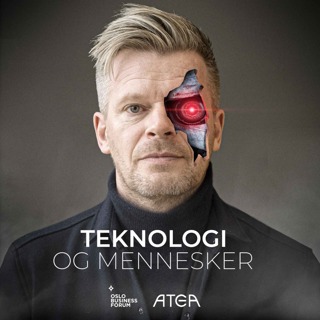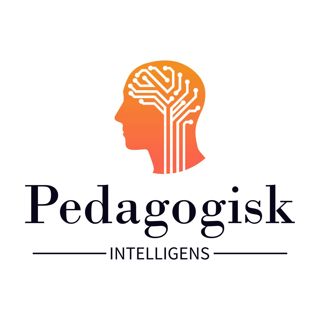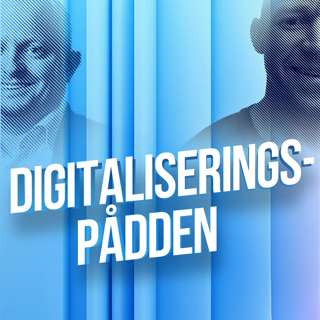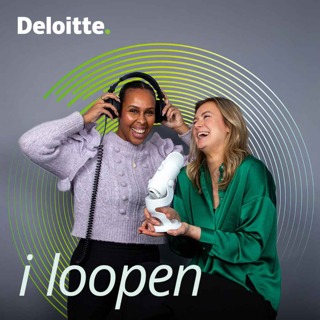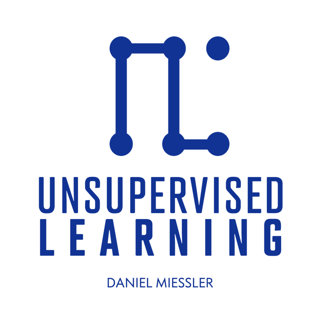
Unsupervised Learning: Episode 41
[ Subscribe to the Podcast: iTunes | Android | RSS ] InfoSec news and articles NSA hacking tools supposedly leaked back in 2013 Could have just been a jump box, which rival groups commonly attack from each other Snowden thinks Russia hacked the NSA and is announcing this as part of the DNC debate Flip […] -- :: Unsupervised Learning: Episode 41 appeared originally on danielmiessler.com. :: Subscribe to Unsupervised Learning---my weekly show where I handpick the best stories from infosec and technology, and talk about why they matter.Become a Member: https://danielmiessler.com/upgradeSee omnystudio.com/listener for privacy information.
18 Aug 201634min

Unsupervised Learning: Episode 40
- LinkedIn breach from 2013 | 65.5 million emails and salted and hashed passwords - XSS in Wordpress plugin (JetPack) - DerbyCon is going to stream live this year | you can’t stream the networking, so it probably won’t hurt next year’s sales too much - Websites using audio fingerprinting to track web usersBecome a Member: https://danielmiessler.com/upgradeSee omnystudio.com/listener for privacy information.
31 Mai 201654min

Unsupervised Learning: Episode 39
[ Subscribe to the Podcast: iTunes | Android | RSS ] InfoSec news and articles BAE systems saying that SWIFT hack is linked to the Sony breach [ Link ] Kaspersky is saying ransomware is the #1 threat now [ Link ] Identity thieves grab W-2 data from Equinox [ Link ] Germany claims it was […] -- :: Unsupervised Learning: Episode 39 appeared originally on danielmiessler.com. :: Subscribe to Unsupervised Learning---my weekly show where I handpick the best stories from infosec and technology, and talk about why they matter.Become a Member: https://danielmiessler.com/upgradeSee omnystudio.com/listener for privacy information.
14 Mai 201623min

Unsupervised Learning: Episode 38
[ Subscribe to the Podcast: iTunes | Android | RSS ] InfoSec news and articles Michigan lawmakers want life sentence for hacking cars | will that apply to changing the speed of your turn signal? SWIFT to get update after Bangladesh hack NSA is so overwhelmed with data that it’s no longer effective FBI now […] -- :: Unsupervised Learning: Episode 38 appeared originally on danielmiessler.com. :: Subscribe to Unsupervised Learning---my weekly show where I handpick the best stories from infosec and technology, and talk about why they matter.Become a Member: https://danielmiessler.com/upgradeSee omnystudio.com/listener for privacy information.
2 Mai 201645min

Unsupervised Learning: Episode 37
[ Subscribe to the Podcast: iTunes | Android | RSS ] InfoSec news Feds paid over 1M to get into San Bernardino iPhone Continued fallout from Panama papers 3.2 million servers vulnerable to JBoss attack which is being used in SamSam ransomware attacks MIT launches internal bug bounty platform | https://threatpost.com/mit-launches-experimental-bug-bounty-program/117618/ NSA recommends out-of-band taps […] -- :: Unsupervised Learning: Episode 37 appeared originally on danielmiessler.com. :: Subscribe to Unsupervised Learning---my weekly show where I handpick the best stories from infosec and technology, and talk about why they matter.Become a Member: https://danielmiessler.com/upgradeSee omnystudio.com/listener for privacy information.
25 Apr 201635min

Unsupervised Learning: Episode 36
[ Subscribe to the Podcast: iTunes | Android | RSS ] News [ ] Nothing useful found on Farook’s phone | http://www.theregister.co.uk/2016/04/14/nothing_useful_on_farook_iphone/?utm_source=dlvr.it&utm_medium=facebook | I think they knew this and used it as a lever for something they’ve wanted for a long time [ ] Apple engineers say security threat is hackers, not government | http://www.macrumors.com/2016/04/15/apple-engineers-hackers-security-threat/ […] -- :: Unsupervised Learning: Episode 36 appeared originally on danielmiessler.com. :: Subscribe to Unsupervised Learning---my weekly show where I handpick the best stories from infosec and technology, and talk about why they matter.Become a Member: https://danielmiessler.com/upgradeSee omnystudio.com/listener for privacy information.
18 Apr 201620min

Unsupervised Learning: Episode 35
[ Subscribe to the Podcast: iTunes | Android | RSS ] News [ ] The hack of Mossak Fonseca has been tied to a breach of their wordpress install through a plugin called Revolution Slider, leading to the Panama Papers breach. So just to be clear, we might have just seen the biggest data leak […] -- :: Unsupervised Learning: Episode 35 appeared originally on danielmiessler.com. :: Subscribe to Unsupervised Learning---my weekly show where I handpick the best stories from infosec and technology, and talk about why they matter.Become a Member: https://danielmiessler.com/upgradeSee omnystudio.com/listener for privacy information.
11 Apr 201627min

5 Increasingly Effective Ways to Achieve Immortality
[ Subscribe to the Podcast: iTunes | Android | RSS ] — I think a lot about how to become immortal. More than I should, probably. Many think it’s a waste of time. Everyone dies, and it’s foolish to think we can avoid it. This piece takes a different view, and describes a number of ways, with varying levels of requirement and effectiveness, one can either avoid dying or live on after death. They’ll go from most practical to most effective. 1. Live On Through Your Children This one is cheating a bit, mostly because you’re not actually becoming immortal. But the fact remains that this does give many people (probably billions) a genuine feeling of lastingness, and that’s significant. Again, I don’t really count it because it’s an extremely tenuous way of living on, but it deserves mention. 2. Live On Through Your Works This one is kind of like the first, in that you’re not actually getting to continue living. So it’s a bit of a misnomer too. What it deals with, however, can also provide a significant sense of contentment at the end of one’s life. Basically, if you leave behind works and ideas that will be used by significant numbers of people, for a significant period of time, you can think of this as living on. It’ll take some sting off of dying, perhaps. But not much. You’re still dead. 3. Reconstruction Through Reproduction of Variables Ok, now we’re getting into actual survivability. This one works like this: either before you die, or after you are dead, an organization collects a series of inputs about you and uses them to create a working model of you. Here are some of the input types: * Your DNA (this is really important) * Everything there is to know about where you grew up (what was happening in the world then, where you went to high school, what the major news events were, the major themes in culture and art, etc.) * Everything there is to know about the people you grew up with * All your personal, transformational experiences. This can be gathered from a myriad of sources, but your own description of the incidents will be key. It’ll also come from interviews with people who know those experiences and how they affected you * Every piece of output you left behind, e.g. blog posts, Facebook posts, books, essays, schoolwork, letters, videos, whatever. They’re all harvested for evidence of who you are Then, the system takes the environment data and models it against your DNA, which it got from a piece of hair or something. It runs your entire genome and determines how you would respond mentally to these various stimuli. The output is a digital life form that is, as much as it can be, you. You now live in cyberspace somewhere, and you’re introduced to the fact that you were reconstructed using this method, and that you have this rich history, etc. You are you. 4. Preserving Your Brain to Be Put in Another Body in the Future Another method for achieving comfort that you’ll continue to live after death is to have a reliable way to preserve your brain once you pass, with the belief that it’ll be either 1) put into another body later (not my favorite idea), or 2) it’ll be downloaded into a digital form to live permanently in cyberspace. Become a Member: https://danielmiessler.com/upgradeSee omnystudio.com/listener for privacy information.
7 Apr 201613min


